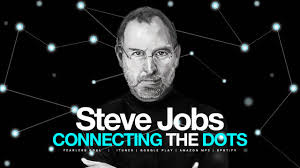‘What can we learn about Ramesh Damani’s investment process?’ asked Jimmy.
‘Ramesh believes that disruption creates volatility and volatility creates opportunities. Volatility is a friend if we use it properly. For example, a lot of industries will get digitized and a lot of them will also get wiped out.
Secondly, India is going through a classic phase of shift from unorganised to organized. E.g. in Quick Service Restaurants. India is in its infancy and has a long runway of 20-30 years. So, we shouldn’t look at the short term but look 5-7 years out and think whether the opportunity can be 100x? What is the Market Cap going to be?
Ramesh buys stocks in a bear market, is patient, and rides his stocks out in a bull market. So, he spends a lot of time thinking about where the next opportunities lie and where the next bull market is. E.g. currently he thinks Cyber security could be the next big opportunity.
He is conservative and does not have a maverick mindset. He doesn’t take undue risk. His belief is that he may not have a great run on his core stocks but should not have a great loss on his core portfolio.’
‘Ramesh has been in the stock market for more than 30 years. What have been some of his key learnings over the years?’ Mihir was curious.
‘Good question. First of all, we should always bear in mind that the stock market is about looking ahead and not looking behind.

Second, investing is about connecting the dots, and Steve Jobs has highlighted that this ability is what differentiates the successful from the rest.

And we should use your background, experience, and knowledge to create our own circle of competence to get an edge as Ramesh did while investing in the tech sector. We should think beyond any short-term risks to estimate the true value of a business.
Third, when we have a great idea, you need to back up the truck. Great ideas are very rare. When a stock keeps going up, a smart investor will keep adding at various points, while an average investor will not.
Conviction comes from an understanding of what we are investing in, rather than investing in the price action. An investor who is price-action oriented will think that the stock has tripled, so let me take some money home. While the fundamentalist will understand that he has bought something that has deep value and even if the stock has tripled, it doesn’t mean the value has been extracted. Also, thinking of selling a stock that has run up and buying it cheaper doesn’t work.
Fourth, respect the market. Valuations are decided by the market. And it’s not our job to justify them. Markets behave wildly at extremes and when a bull market gets over, the leaders and fancied stocks get squashed.
Fifth, at a price, everything is captured – downside is limited, and upside can be huge.’
‘Does he mention how we can reach his level of thinking?’ Siddharth wanted to know.
‘Yes. His belief is that to be a great investor, we need independence of thought and a firm belief set.
First of all, we need to get out of self-limiting mindsets and biases. We should study the history of markets, spend time thinking independently about bull and bear markets, where India was, is, and will be going.
Secondly, we need to do our own homework and have the integrity of independent thought. Finding great stock picks is a lonely road. We can’t piggyback on someone else’s thoughts and convictions.
Thirdly, we should have wise counsel – family and close circle of friends, with whom we can discuss ideas, even though the final decision should be our own.
‘So, did he have a circle of close friends?’ Siddharth continued.
‘Yes, he was fortunate that his close circle included the likes of Radhakishan Damani, Rakesh Jhunjhunwala, Nemish Shah, and Durgesh Shah.

He saw four key success traits in them which we should also aim to imbibe.
First, we should be bullish on India. Then we can overcome any crisis. If we are bullish, we will be right 80% of the time as India is a land of opportunity.
Second, we should accept that markets are supreme. The market will reward good businesses. In the long term, market is a weighing machine, although in the short term, it is a voting machine.
Third, we should always look to buy great businesses and buy them cheap.
Fourth, when we believe in an idea, we should go ahead and bet the bank.’
‘Satjeet, you mentioned that Ramesh’s key differentiator is that he is able to navigate both bear and bull markets,’ Shrikant said, ‘What can we learn from him in that regard?’
‘Correct. Ramesh believes that time in the market is more important than timing the market. Great businesses compound over a period of time. They keep churning out growth. We should ignore if the stock is temporarily overpriced or mispriced as it will correct itself. More often than not, we will regret getting out of a great business. We shouldn’t cut our winners just because they have increased to more than a certain percentage of your portfolio.

Most of the time, timing the market is a futile exercise, but at the extremes, it can be a profitable exercise.
We can use news flow and market action as an indicator.
- At top of Bull market, news headlines are very positive, but the market will go down. It will keep reacting negatively despite good news coming out.
- At bottom of bear market, headlines will be very negative, but individual stocks will go up instead of going down. So, we need to see individual stocks at that time and not necessarily the aggregate.
Then we should also look at public sentiment. If we start getting tips from everyone around us, then it's time to get out.
‘Ramesh has also mentioned that capitalism works in two seasons - bullish and bearish right? What does he mean by that?’ asked Siddharth.
‘Good observation. Ramesh believes that bear and bull markets are when investors should pay the greatest attention to markets.
Bear markets can be prolonged, but it can be an excellent time for us to find great companies and build our portfolio for the Bull market. Big money is always made at the bottom of the bear market, when no one is interested. We can buy quantities we want at the price we want. We should go in with the perspective that 'I am in the markets to make money and get rich'.
On the other hand, when valuations become extreme in a bull market, stocks can top out well before bull market ends. So, if we think the Bull market is topping out in the next 6 weeks, then we should sell 15% every week. Do it in a disciplined manner. When a bull market is getting over, then stocks can go down 50-90%. First of all, we shouldn’t get into a stock that if it falls 50%, we would be scared to buy more.’
‘How does he manage risk?’ Mihir enquired
‘Ramesh thinks like a part owner. His view is that if we do that, then we don’t get rattled. And our entry point should be so good that even in a bad case, we don't lose capital permanently. If he sees a bear market coming, he will sell and get into cash.’
‘We haven’t talked much about how he evaluates company management so far. Does he not look at that?’ asked Jimmy.
‘Of course, he does and places high importance on that. Before investing in a stock, he meets the company management multiple times. He wants to see hunger and passion for building the business. Also, management should have substantial skin in the game and should think like a shareholder. He also likes to see their track record over 10-15 years.
‘Ramesh seems to have most of the traits of a great investors. Has he mentioned any aspects where he could be better?’ Mazahir asked.
‘Actually, he is very humble in that regard. He accepts that there are two lacunae in his thinking:
a. His initial position should be much bigger than what it normally is – he needs to overcome his conservative, middle-class mentality
b. Instead of basking in the glory of the stock he has bought going up, he should be adding it a bit more aggressively. He has made stunning mistakes of not betting serious sums of money on his own convictions.
‘We have covered Ramesh’s investment style and process in detail. Does he have any advice for investors?’ asked Shrikant.
‘He has been very generous with his advice.
First, understand the power of compounding early in life.
Second, have independent thinking with integrity. We should have our own thought process. When we come to an investment decision, it should be our own investment decision.
Third, think of money as a means to an end. Enjoy the process.
Fourth, become a voracious reader. we won't be successful investors if we don't read. It's the fundamental raw material for what we do. So, we should sit back, read and absorb information. Incrementally, we will become smart every day. Ramesh reads FT and WSJ. He reads not just balance sheets but books, magazines, blogs. Two websites he recommends are thebrowser.com and long-form.org.
Fifth, a lone person can have an edge. So, we shouldn't get intimidated of putting our head against the best people in the world.
‘Great Satjeet, we have discussed Ramesh Damani in detail and learnt quite a lot. Any final thought?’ Jimmy said.
‘Yes, one interesting observation was how the great investors judge success in the stock market.
Ramesh mentions that they don’t just look at the wealth generated. More importantly, they look at how much stock did you buy, what percent of the company did you buy, and how much did it go up after you bought it. So, if we want to be considered in the league of great investors, we need to demonstrate the conviction behind our stock picks. It’s not just about making money.’
‘OK guys, we have had a wonderful session today due to Satjeet’s excellent preparation on Ramesh Damani and everyone’s active participation,’ said Shrikant.
‘Yes, we didn’t even realize it and it’s already 6 pm now,’ Jimmy added.
‘Yes, It’s time to party,’ everyone said as they wrapped up their discussion and headed to Calangute beach to have a good time…



